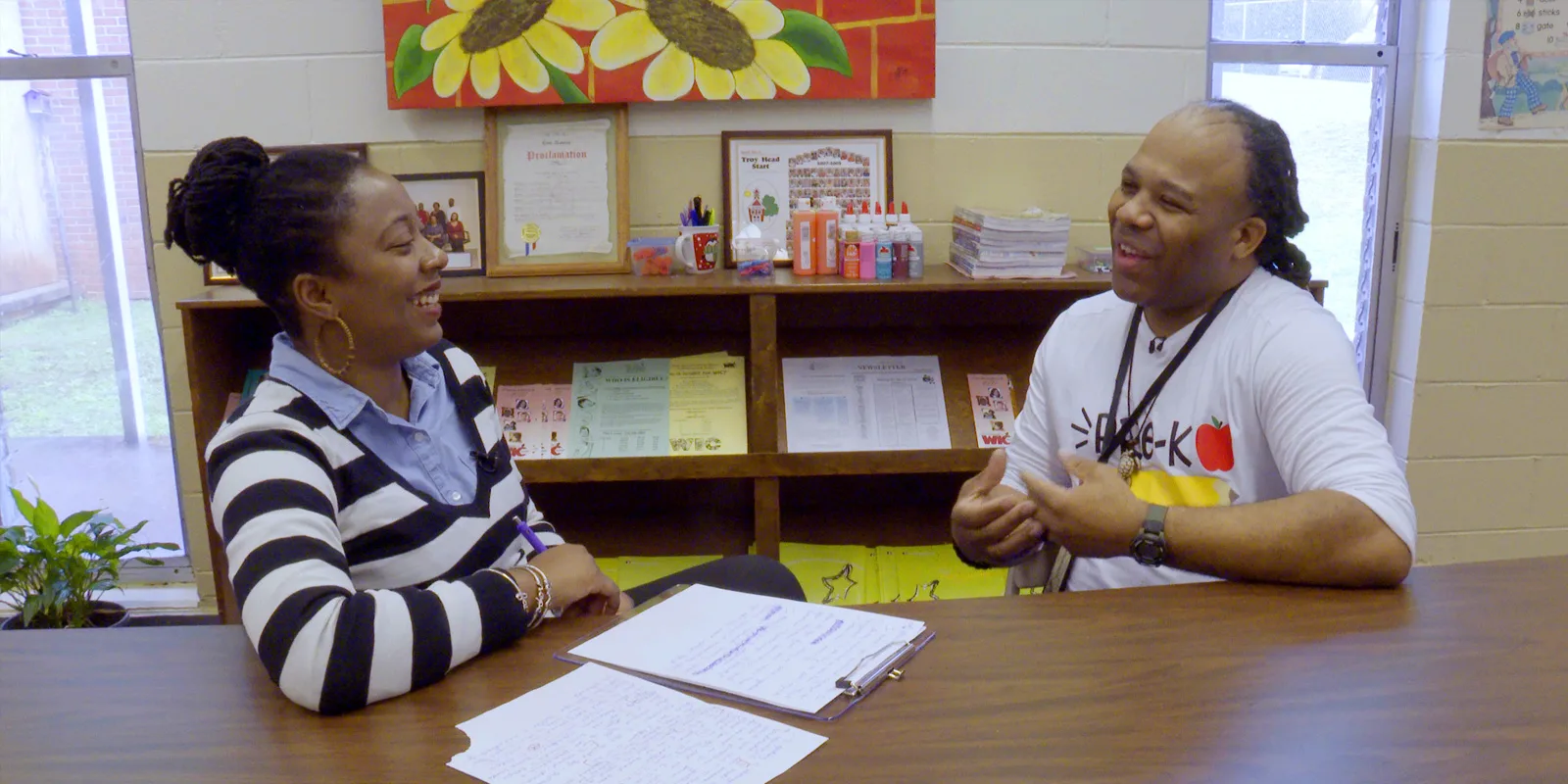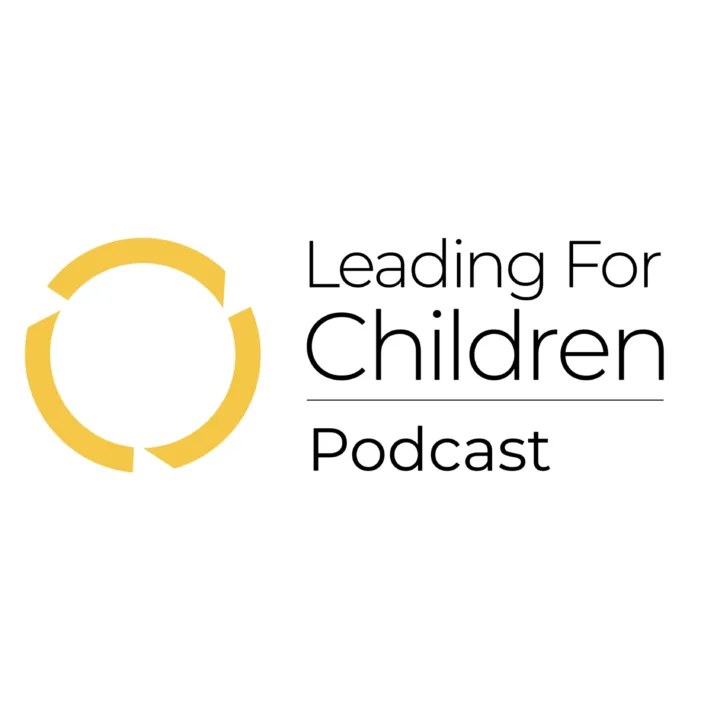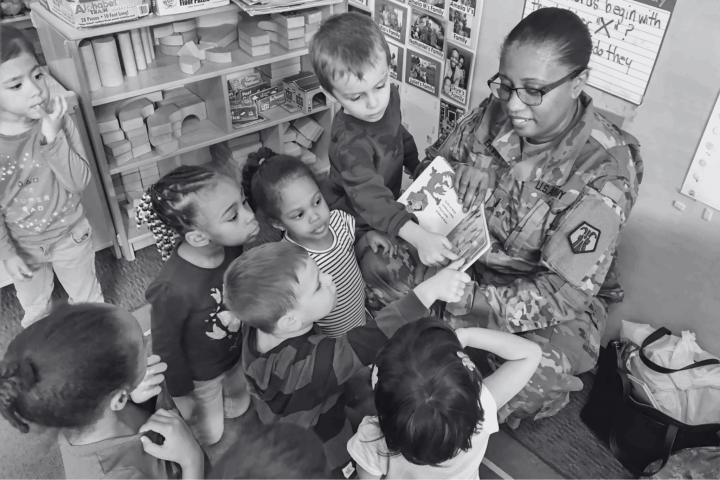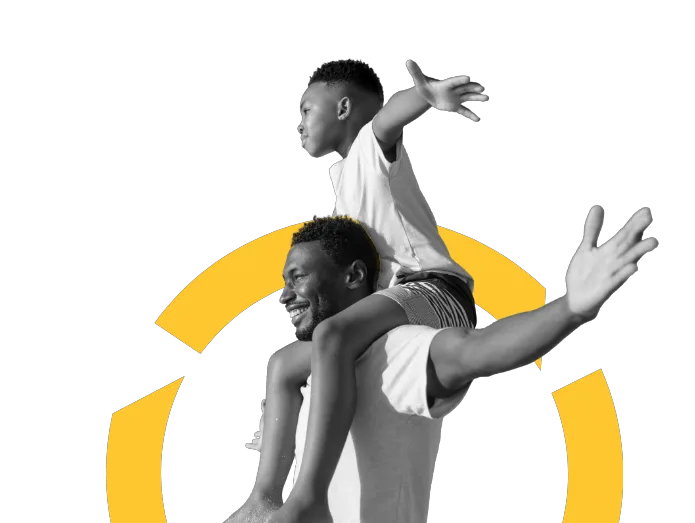By Judy Jablon, Alison LaRocca and Tara Skiles
In September 2018, Tara Skiles sent an email to Judy Jablon at Leading for Children (LFC) that read: “We are at a crossroads with coaching in Alabama right now and we need some advice. We have come so far and yet we are still in a consultation mode of coaching with too much emphasis on fixing deficits rather than on a strengths-based approach of continuous quality improvement. We could use some guidance.”
Being a leader for children means that to achieve excellence for all children, you share your knowledge and experience, readily invite the perspectives of others, and look to the wisdom of partnerships to create solutions.
Skiles and her colleagues at the Alabama Department of Early Childhood Education (ADECE) had identified the need to reevaluate their statewide approach to early childhood coaching. While there was evidence of quality improvement in First Class Pre-K classrooms where their coaching framework was in place, growth and quality improvement were not progressing at the desired pace. They recognized that, too often, coaching practice represented a “fix it” culture rather than a collaborative exchange of ideas. Although intended to build agency among educators, coaching practices were inadvertently reinforcing power imbalances that undermine a leadership culture among early childhood professionals. Many coaches were positioning themselves as the owners of knowledge, while teachers were the receivers.
Listening to Skiles during the initial conversations, Jablon recognized that ADECE was experiencing a trend that has undermined many early learning systems that use coaching to support professional learning. When coaching relationships are not equitable learning partnerships based on shared leadership, where everyone’s voice has equal power, the system breaks down, and the transformational power of coaching is lost. When this breakdown happens, a myriad of problems arise. Rather than highlighting and building upon strengths—the attitude to learning we hope to inspire in children and families—the coaching relationship becomes one where the coach sees herself as the expert, observing the teacher through a deficit lens and aiming to fix the teacher’s practices. Meanwhile, coaches are also under pressure, with program supervisors monitoring their work and expecting rapid change. The unintended result: teachers are resentful, disempowered and most of all, missing out on the rich opportunities of professional learning.
In this article, we describe the partnership between ADECE and LFC over the past three years to build a shared leadership model for equitable, strengths-based coaching for birth to age eight in Alabama. Our work together is rooted in a new definition of leadership, where everyone in the young child’s ecosystem embraces their role as a leader for children. We have designed intentional learning opportunities that elevate the wisdom of early learning professionals. Creating equitable learning partnerships drives our decisions. Finally, all of our work is informed by ongoing, participatory evaluation. With these driving principles as the basis for shaping a strengths-based, equitable early learning coaching system, our approach helps adults build relationships that exemplify shared leadership. This holds promise for building equity in early learning coaching across the country.
Being a Leader for Children
If we are going to ensure excellence for every young child in this country, we can’t have coaches or teachers saying, “Just tell me what to do.” Unfortunately, this happens all too often. Dr. Barbara Cooper, Alabama’s Secretary of Early Childhood Education, advocates that educators in every role in the early learning system must step into their power as leaders for children:
“Cultivating leaders at all levels of the early learning ecosystem forms the foundation for our core work at the department. The ADECE’s First Class Pre-K program has received the highest NIEER ranking for 15 consecutive years because we have a culture that fosters equitable learning partnerships among leaders, coaches and teachers. We view and lead our work through an equity lens and the distributed leadership process allows us to ensure the work reaches the children and families in Alabama. Teachers must have a leadership mindset and demonstrate through their practices that they are leaders of their classrooms. When teachers build strong relationships and provide guidance for children, they significantly impact a child’s academic, social and emotional development for a lifetime. At the ADECE, we are committed to intentionally fostering and growing leadership within our teachers through our shared leadership model for coaching.”
In the book, The Five Commitments of Optimistic Leaders: A Reflective Practice Journal, Jablon, Nichole Parks and Laura Ensler offer this definition of leadership in early learning: “Leadership is how you see yourself, your willingness to recognize and own the impact you have on others, and your commitment to support growth and increased effectiveness. Leadership is not defined by your role or title.”
Being a leader for children means that to achieve excellence for all children, you share your knowledge and experience, readily invite the perspectives of others and look to the wisdom of partnerships to create solutions. In adopting the behaviors of Optimistic Leaders, the adults model the positive, strength-based interactions that our children deserve and therefore must witness and experience every day.
As ADECE promotes a professional learning culture of shared leadership, and builds a new early learning coaching system, educators in every role are encouraged to be leaders like never before. The state of Alabama is moving forward with the stance that every voice is crucial to early childhood education.
Intentional Design of Professional Learning Experiences
From Skiles’ extensive experience as ADECE’s director of professional development, she was committed to intentional pacing of learning experiences. Thoughtful planning was key to avoid the avalanche of new initiatives that can create an illusion of progress in the moment, but that ultimately leave people trailing behind, overwhelmed by demands to restructure their work.
Skiles and Jablon set a direction that honored the wisdom of the individuals at every level of the system and created opportunities that would reinforce positive change (Nohria & Beer, 2000). They mapped out a pathway for professional learning experiences that would unfold over several years, introducing new practices incrementally and building in time for reflection. At its core, the new approach centered on a strengths-based stance, benefiting from the wisdom of a diversity of perspectives and encouraging reciprocal partnerships based on trust and respect.
For members of the ADECE Coaching and Optimistic Leadership Learning Networks, the goal is to create reciprocity in relationships and shared power. What began as a deep look into the potential for shared power within teacher-coach relationships has grown, step-by-step, into a culture of equity across the early learning ecosystem. Individuals invite one another to the table and engage in interactions that are purposeful and equitable. They embrace the idea that each interaction is an opportunity to learn and grow, personally and professionally, and they bring this commitment to effective communication into their interactions with children and families. The result is a co-created vision of equitable learning partnerships that shapes classroom practice and the way adults across the early learning ecosystem guide children in their growth as leaders.
Equitable Learning Partnerships
To promote shared leadership and a coaching culture that empowers everyone, equitable learning partnerships are vital. Built on respect, trust and reciprocity, they operate through sharing, listening and making space for voices that have been too often pushed into the background. These four Alabama early learning educators offer insights about their own experiences with equitable learning partnerships.
Ongoing and Participatory Evaluation
The experiences of individuals in a variety of early childhood roles illustrate how voices weave together to create a cadre of connected professionals committed to shared quality and leadership, driving ADECE forward in its path to systems change. The collection and retelling of the individual experience is part of an ongoing commitment by LFC and Luminary Evaluation Group, the independent evaluators on these projects, to capture evidence of effectiveness of the Learning Network and make the case for its shared leadership approach. Accordingly, Luminary uses a participatory approach to evaluation to collaborate with LFC and Learning Network members to develop a set of Optimistic Leadership milestones and indicators. Analysis of these measures will trace the individual growth of Learning Network members, as well as whole-group impact. The work will contribute to a growing body of research focused on the efficacy and effectiveness of the Learning Network model and the role of shared power in early childhood systems.
Conclusion
So, how do systems begin to make progress toward the ideal of shared leadership and strength-based, equitable learning partnerships? For ADECE, the answer is in co-creation of professional development experiences that encourage the adults in the lives of young children to recognize their own wisdom and leadership qualities, while also elevating the wisdom of others.
Early childhood coaching holds tremendous potential to build equity and excellence in our early learning ecosystems. Across the nation, early learning systems have begun to harness this potential with an eye to quality improvement and lasting change. While research into the mechanisms of effective coaching practice continues to emerge, one idea is clear: Sustained practice change and quality improvement are only possible when coaching relationships are built on trust, respect, shared wisdom and an equitable partnership for learning (Finkelstein, 2016).
Throughout ADECE and LFC’s partnership to build equity in coaching relationships, the focus on intentional pacing of learning experiences, co-creation of lasting learning resources and elevation of diverse voices, led to a shared, co-constructed vision of quality across the state’s early learning system. Within this vision of quality, development of shared leadership and reciprocal relationships becomes a daily practice for adults across the early learning ecosystem, creating sustainable pathways for ensuring equity and excellence for children. As Ami Brooks, coach facilitator from ADECE, summed it up: “All voices matter and are valued.”





